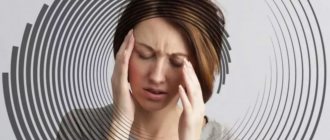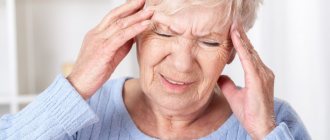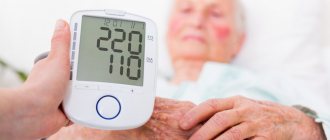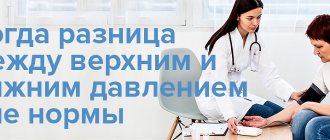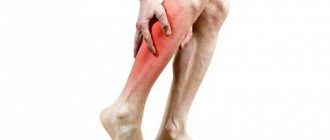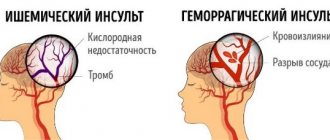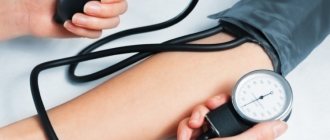More than 50% of people over the age of 60-65 suffer from hypertension. This term is commonly used to refer to high blood pressure. But there are also those pensioners for whom hypotension or low blood pressure causes discomfort in life. It would seem that it is much easier to cope with low blood pressure: drink a cup of coffee or do a couple of exercises, and again the body is in good shape. But is this really so?
What is hypotension?
In old age, blood pressure can change several times a day. Small deviations from the norm, which is ideally 120/80 mm. Hg Art., are acceptable. But a decrease to below 100/60 mm. Hg Art. is fraught with serious consequences. The person becomes ill and needs emergency medical care.
Hypotension is diagnosed in men when the pressure is below 105/65 mm. Hg Art., and in women - with pressure below 95/60 mm. Hg Art. It should be taken into account that if a pensioner feels well with reduced levels, then we are not talking about hypotension, but about physiological hypotension.
Why does older men and women experience low blood pressure?
- Men
Elderly men are in a hypotensive state for a number of reasons. Most often, the numbers do not reach normal values in people of thin build. In the absence of adverse symptoms, hypotension is perceived as a physiological feature.
Hereditary predisposition and professional sports training are factors that can manifest themselves in old age in the form of low blood pressure. Most often, manifestations are noticed over the age of sixty years. The condition is not considered a pathology and is not corrected unless absolutely necessary.
- Women
Various reasons contribute to a decrease in blood pressure in women. In their youth, girls torture themselves with all sorts of diets, which has a negative impact on their health, including blood pressure. If a woman is over fifty years old, low blood pressure may indicate some pathology.
The most common cause of hypotension is weakness of the heart muscle. This condition is often accompanied by weakness, nausea, frequent severe headaches, dizziness, increased sweating, pale skin and other symptoms. In such cases, self-medication is contraindicated; the help of a doctor is necessary.
We recommend
“Care for elderly people over 80 years old” Read more
Forms of hypotension
A sharp drop in pressure or frequent changes can trigger an ischemic stroke, so ignoring poor health, especially in old age, is extremely dangerous.
The following forms of hypotension are distinguished:
- acute
(characterized by critically low blood pressure, which may be the result of blood loss, heart attack, allergies, thromboembolism or other pathologies);
- chronic
(defined as an independent deviation due to a violation of the vasomotor function of the brain or as a result of diabetes, osteochondrosis and other diseases).
Hypotension is also divided into physiological and pathological
. The physiological type can appear in childhood and persist throughout life. In old age, ailments usually occur in the morning. As a rule, in this case, patients already know how to cope with poor health and adjust their blood pressure on their own.
Pathological hypotension begins at a young or mature age. Symptoms are more pronounced and persist throughout the day.
Pathological hypotension is extremely dangerous due to the onset of a hypotensive crisis, in which one can observe:
- fainting;
- thready pulse;
- drenching cold sweat;
- weakened vision.
It is very difficult to cope with such a condition on your own and even survive it, especially for an elderly person.
Treatment of hypotension in the elderly
If an elderly person’s blood pressure fluctuates, it can be normalized by taking appropriate medications. But before using such means, you need to find out why the pressure began to jump.
The main task is to identify the underlying disease leading to hypotension. It is not worth taking pills constantly, and increasing/decreasing the old ones is not worth it. This will not bring the desired results and can only harm your health.
The use of medications is especially contraindicated for people who:
- Recently underwent surgery;
- Suffer from hormonal imbalance;
- Have tumors on the body.
If the patient has physiological causes of hypotension, then he needs to consult a doctor. He will select the optimal medications and indicate when to take them, in what dosage and for what period. Perhaps he will prescribe Piracetam, Citramon or Ascopar. The first medicine is taken in a course. The rest contain caffeine.
Also, if you have low blood pressure in an elderly person, you must follow the following recommendations:
- You should sleep at least 7 hours a day;
- The apartment where an elderly person lives should be regularly ventilated;
- It is better to get out of bed smoothly, without haste;
- Every morning a hearty and healthy breakfast;
- The patient should choose a diet. You should eat nutritious foods in small portions 5-6 times a day;
- Be sure to take short walks every day before going to bed (half an hour will be enough);
- The pillow on the bed should not be placed too high. It is important that a person’s neck does not become stiff.
In addition to all of the above, it is important to see a doctor regularly. He will help monitor the condition and promptly tell you how to deal with the disease.
Symptoms of low blood pressure in the elderly
Hypotension can be accurately determined using a tonometer, as well as tests and diagnostic studies. But there is a list of signs by which one can guess that a pensioner is feeling unwell, and the reason is hidden in low blood pressure. These signs include:
- lethargy;
- irritability;
- apathy;
- impotence;
- memory impairment;
- decreased concentration;
- cardiopalmus;
- heart rhythm problems;
- nausea;
- vomiting;
- pale skin;
- headache;
- malaise;
- asthenia.
High blood pressure
Every year, the number of elderly people diagnosed with hypertension in the world increases. Some people themselves provoke the disease by disrupting their diet and neglecting a healthy lifestyle. Age manifests itself through changes in the functioning of organs:
- Hypertrophy of the walls of arteries and capillaries is revealed;
- Cardiac output decreases;
- The kidneys do not completely remove excess fluid from the tissues;
- Blood circulation slows down;
- The volume of intracellular fluid increases.
In addition, a number of other concomitant pathologies are revealed, against the background of which the body weakens. As a result, pressure often fluctuates, which is not noticeable without the use of instruments.
Causes of increased blood pressure
To cure hypertension, you need to find the root cause that led to the increase in pressure. If it rises only once, then doctors note hypertension. In this case, you will have to remove the factor that provoked the appearance of symptoms. With a sustained increase in blood pressure, we are talking about the presence of a full-fledged disease in the patient.
The reasons for increased blood pressure in mature individuals are quite varied:
- Overweight;
- Stress and anxiety;
- Low mobility;
- Smoking and drinking alcohol;
- Hereditary predisposition;
- Unbalanced diet;
- Taking medications that increase blood pressure;
- Existing diseases.
Symptoms of high blood pressure
Almost no one can reliably determine for the first time when the pressure surge occurred. The disease begins asymptomatically. Even if dizziness is noted, older people simply attribute this condition to fatigue and changes in weather.
In the absence of treatment, changes in blood pressure are repeated systematically. At an advanced age, its pronounced symptoms are observed:
- Nervousness;
- Constant headaches;
- General impotence;
- Cardiopalmus;
- Nose bleed.
Other less frequently identified signs include decreased performance and loss of interest in what is happening. Some people's limbs go numb, and some people lose their appetite. With high blood pressure, vision deteriorates, and complete blindness often develops.
Recommendations
Elderly people who have high blood pressure should immediately go to the clinic.
You can visit a therapist or gerontologist (a selection of geriatricians with a rating), who, if necessary, will prescribe a number of additional examinations and tests. The doctor draws up a medication regimen and the exact dosage. To stabilize the condition, medications belonging to different groups are prescribed. Blood pressure cannot be stabilized with drugs alone until the irritating factors are eliminated. The doctor gives advice:
- Limit consumption of salty foods;
- Eat a balanced diet, excluding fatty and fried foods;
- Avoid drinking alcohol;
- Play sports, take walks;
- Lose weight.
You need to measure your blood pressure every day and keep a hypertensive diary. You should not try to find out from neighbors or on forums what to do if a hypertensive crisis occurs. If problems are noticed, you should consult a doctor.
Causes of low blood pressure
In most cases, hypotension is a consequence of a genetic predisposition transmitted along the hereditary line. But diseases that include:
- diseases of the cardiovascular system (cardiosclerosis, heart attack);
- cardiac asthma;
- infections;
- allergies;
- vascular dystonia;
- pulmonary edema;
- Alzheimer's disease.
Such diseases disrupt the speed of blood flow, thereby causing hypotension. It is necessary to know them and treat them, since in the vast majority of cases, getting rid of the root cause helps an elderly person cope with low blood pressure.
Dangerous complications
Many people treat arterial hypotension with disdain, because very often its only symptoms are drowsiness and dizziness. It rarely leads to dangerous complications such as heart attack or stroke, unlike hypertension. Meanwhile, spontaneous syncope and their consequences can be extremely severe.
Low blood pressure leads to a decrease in perfusion (blood supply) of many organs and systems. The cells of the myocardium and brain are considered the most sensitive. Due to reduced blood flow, they do not receive enough oxygen and nutrients, which can lead to hypoxia.
When cerebral blood flow decreases, a person will first feel sleep disturbances. Then he will begin to have problems with memory and concentration. Thinking will become slower and more incoherent. As a result, the above processes can lead to dementia - senile dementia.
The presence of orthostatic hypotension often causes fainting. As a rule, after them a person quickly comes to his senses, but sometimes a fall can cause severe head injuries.
If the heart muscle does not receive enough oxygen, its contractility decreases, which leads to an even greater decrease in blood pressure. A vicious circle arises: decreased contraction force and oxygen starvation.


